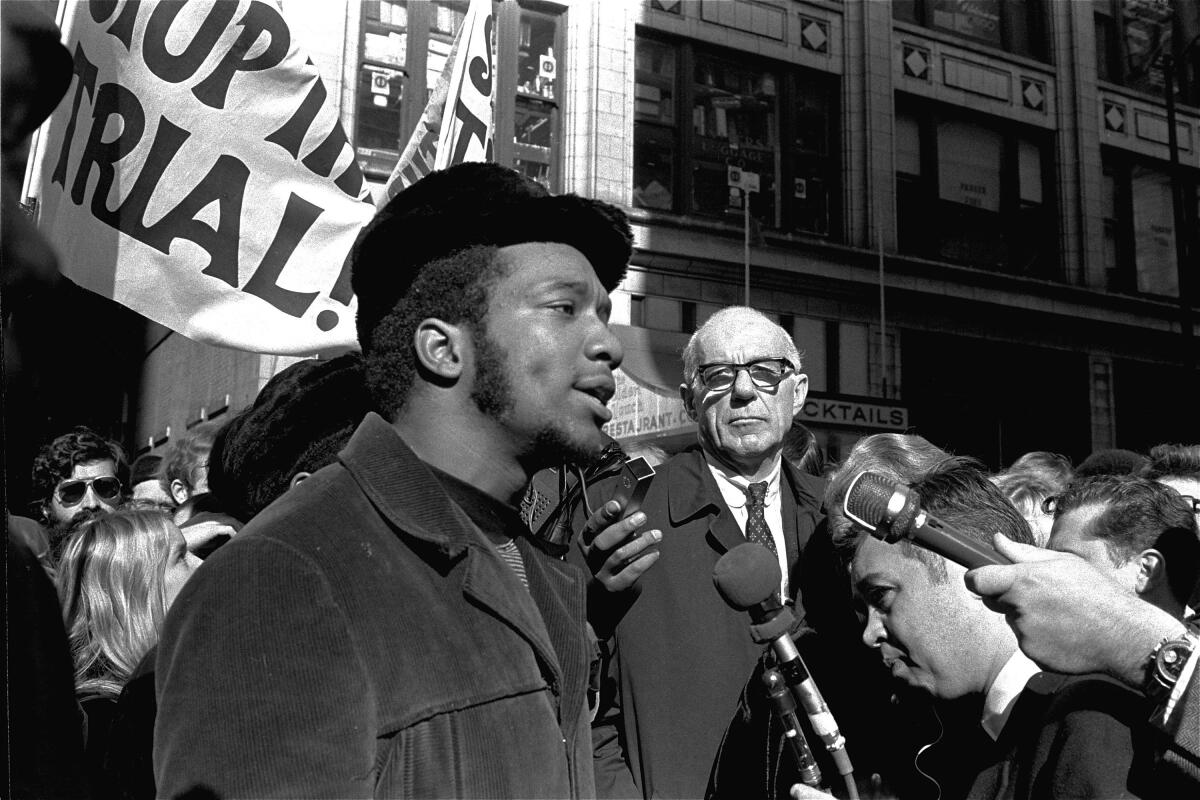Column: The ‘war on drugs’ was always about race

- Share via
Democrats talk about a “failed war on drugs” because they lack the fortitude to speak on this uncomfortable truth: It didn’t fail.
As Kathleen Frydl eloquently points out in her book “The Drug Wars in America, 1940-1973,” the country’s gradual move from regulating recreational drugs to criminalizing them came to fruition in 1968. Before then, the federal government’s version of the drug war included tax policies such as the Marihuana Act of 1937, sending tax collectors after the industry.
After 1968, under the Justice Department instead of the Treasury (did no one consider Health and Human Services?), it was clear the war’s focus was criminal prosecutions, not treatment. So even before President Richard Nixon declared cannabis and other recreational drugs to be Public Enemy No. 1 in 1971, the Johnson administration had set the policy that would swell U.S. prisons for decades to come.
About 1.3 million of the 2.3 million incarcerated people in this country are in state prisons. Drug-related crimes are the most common reason for imprisonment in state prisons. The country has the planet’s highest prison population. Doesn’t it seem a bit nonsensical to characterize the drug war as a failure when sending people to prison for drug-related crimes was the intent?
But where the “failed war on drugs” rhetoric goes from nonsensical to offensive is when Democrats speak as if the race disparity in drug-related arrests wasn’t intentional.
“For decades, our federal government has waged a War on Drugs that has unfairly impacted low-income communities and communities of color. … It is time for Congress to end the federal marijuana prohibition and reinvest in communities most impacted by the failed War on Drugs.”
These are the words of Sen. Cory Booker of New Jersey, who along with two other Democratic co-sponsors announced the Cannabis Administration and Opportunity Act last week. While I applaud the move to end marijuana prohibition, I’m not a fan of the soft landing he gave our anti-drug history.
“Unfairly impacted”?
Nah, bruh — we were targeted. We are targeted.
Today Black people are four times more likely to be arrested for marijuana possession than our white counterparts, despite comparable usage rates. And these arrests … we know they can ruin lives.
There are more than 500,000 people in jail right now simply because they can’t afford bail.
We know the FBI’s illegal Counterintelligence Program used policies from the drug war to try to discredit the civil rights movement and attack Black leaders like members of the Black Panther Party.
We know Nixon’s own domestic policy advisor, John Ehrlichman, said that drug laws gave a pretext to “arrest their leaders, raid their homes, break up their meetings, and vilify them night after night on the evening news.” He even said: “Did we know we were lying about the drugs? Of course we did.”
And we know in 1971, the same year Nixon launched his drug war, he was recorded sharing laughs with California Gov. Ronald Reagan as they call Africans “monkeys” and “cannibals.” Later, as president, Reagan put Nixon’s drug war and mass incarceration on steroids.
So, no, I won’t tolerate attempts to frame the drug war as failed. I won’t accept a narrative that suggests it was simply flawed legislation or that the racial disparity was an unforeseen byproduct. None of this was driven by science. This was driven by prejudice and politics. For decades, anyone who wanted to be president had to come across as being the toughest on crime and drugs. That would include President Biden, who as a senator in 1994 sponsored the crime bill that helped to double the prison population from 1994 to 2009.
That’s not “unfairly impacted.” That’s state-sanctioned racism masquerading as good policy.
Yes, it is disgusting. Yes, it is nefarious. But it is also the truth. Rebranding it doesn’t change that.
More to Read
A cure for the common opinion
Get thought-provoking perspectives with our weekly newsletter.
You may occasionally receive promotional content from the Los Angeles Times.











